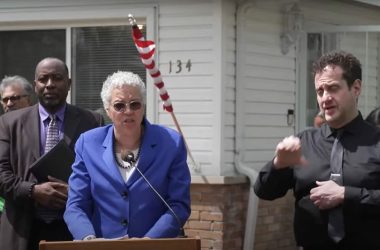Story updated at 3:24 p.m. on May 18, 2012, to include an early draft of Dr. Spitzer’s letter.
Dr. Robert L. Spitzer, considered by some to be the father of modernpsychiatry, who turns 80 next week, lay awake at 4 o’clock on a recent morning knowing he had to do the one thing that comes least naturally to him.
He pushed himself up and staggered into the dark. His desk seemed impossibly far away; Dr. Spitzer suffers from Parkinson’s disease and has trouble walking, sitting, even holding his head upright.
…
Dr. Spitzer’s fingers jerked over the keys, unreliably, as if choking on the words. And then it was done: a short letter to be published this month, in the same journal where the original study appeared.
“I believe,” it concludes, “I owe the gay community an apology.”
An early draft of Spitzer’s letter to Dr. Ken Zucker appeared on Truth Wins Out in April:
Several months ago I told you that because of my revised view of my 2001 study of reparative therapy changing sexual orientation, I was considering writing something that would acknowledge that I now judged the major critiques of the study as largely correct. After discussing my revised view of the study with Gabriel Arana, a reporter for American Prospect, and with Malcolm Ritter, an Associated Press science writer, I decided that I had to make public my current thinking about the study. Here it is.
Basic Research Question. From the beginning it was: “can some version of reparative therapy enable individuals to change their sexual orientation from homosexual to heterosexual?” Realizing that the study design made it impossible to answer this question, I suggested that the study could be viewed as answering the question, “how do individuals undergoing reparative therapy describe changes in sexual orientation?” – a not very interesting question.
The Fatal Flaw in the Study – There was no way to judge the credibility of subject reports of change in sexual orientation. I offered several (unconvincing) reasons why it was reasonable to assume that the subject’s reports of change were credible and not self-deception or outright lying. But the simple fact is that there was no way to determine if the subject’s accounts of change were valid.
I believe I owe the gay community an apology for my study making unproven claims of the efficacy of reparative therapy. I also apologize to any gay person who wasted time and energy undergoing some form of reparative therapy because they believed that I had proven that reparative therapy works with some “highly motivated” individuals.
Robert Spitzer. M.D.
Emeritus Professor of Psychiatry,
Columbia University
Read the exclusive story on Truth Wins Out.








